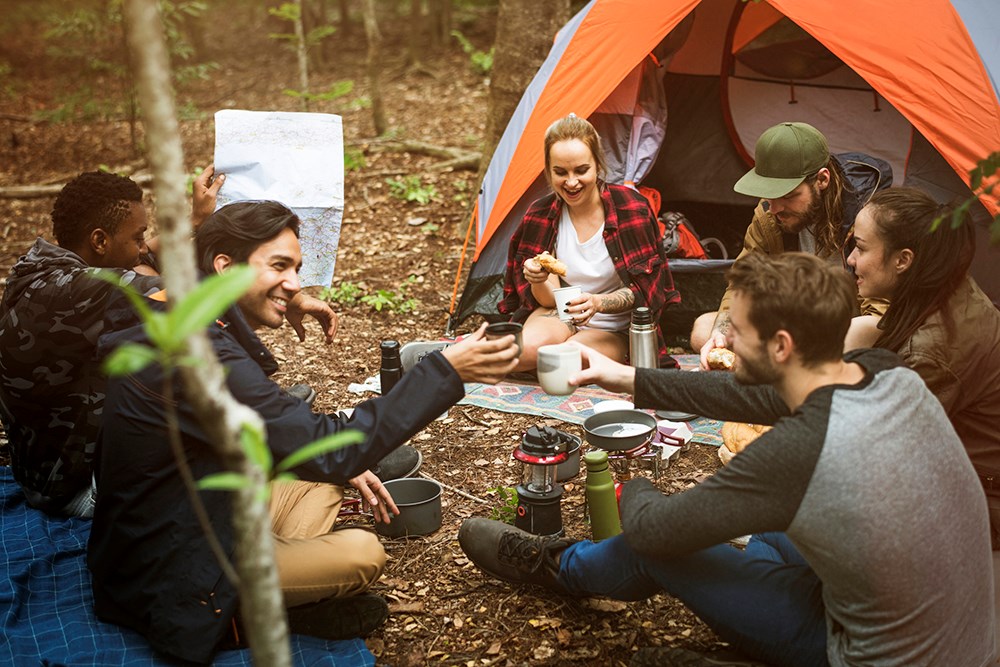Camping is a great way to disconnect from the digital world, reconnect with nature and spend time with loved ones. However, being outdoors in the wilderness can also present certain risks and hazards that can be dangerous if not approached with care. In order to ensure everyone stays safe and has a fun time while camping, it’s important to follow some essential camping safety tips. Here are 7 essential camping safety tips to keep everyone safe while enjoying the great outdoors.
1. Plan ahead and prepare
One of the most important things to do before embarking on a camping trip is to plan ahead and prepare. This means researching the location you’ll be camping in, knowing the weather forecast, understanding any local wildlife or terrain hazards, and bringing the right gear for the trip. By being prepared, you can avoid common camping mishaps and ensure that everyone is safe and comfortable.
2. Set up camp safely
When setting up camp, it’s important to choose a safe and suitable spot. Avoid setting up camp near water sources that could flood or areas prone to falling rocks or tree limbs. Make sure to pitch your tent on level ground and secure it properly with tent stakes or weights to avoid it from toppling over. Also, ensure that the campfire is set up in a designated fire pit and is a safe distance from the tent and surrounding vegetation.
3. Pack appropriate gear
When packing for a camping trip, it’s important to bring appropriate gear for the environment and activities you’ll be doing. This includes a first aid kit, insect repellent, sunscreen, a map and compass, and appropriate clothing and footwear. It’s also important to pack enough food and water for the duration of the trip and to bring a water filtration system or purification tablets in case water sources are not available.
4. Follow campfire safety rules
- Campfires are a great way to stay warm and cook food while camping, but they can also be dangerous if not handled properly. Follow these campfire safety rules to ensure everyone stays safe:
- Only build a fire in a designated fire pit and keep the fire small.
- Clear any debris or vegetation around the fire pit to avoid it spreading.
- Never leave the fire unattended and ensure it is completely extinguished before going to bed or leaving the campsite.
5. Be aware of wildlife
Encountering wildlife can be one of the most exciting parts of camping, but it’s important to remember that animals in the wild are unpredictable and can be dangerous if provoked or threatened. Research the local wildlife ahead of time and understand their behavior and what to do in case of an encounter. Some general rules to follow when encountering wildlife are to keep a safe distance, avoid feeding them, and never approach a mother with her offspring. Buy 300 blackout ammo online for security in wildlife.
6. Stay hydrated and well-fed
Staying hydrated and well-fed is essential to camping safety. Dehydration can lead to heat exhaustion and other health problems, so it’s important to drink plenty of water throughout the day. Eating nutritious food will also provide energy and keep everyone healthy during the trip. Make sure to pack enough food for the duration of the trip and store it in airtight containers to avoid attracting wildlife.
7. Practice Leave No Trace principles
Finally, it’s important to practice Leave No Trace principles to ensure that you’re leaving the wilderness as you found it. This means packing out all trash and disposing of it properly, using designated restrooms or burying human waste at least 200 feet away from water sources, and avoiding damaging vegetation or wildlife habitats. By following Leave No Trace principles, you can help preserve the natural environment and keep it safe for future generations.
Conclusion:
In conclusion, camping can be a great way to enjoy the outdoors and spend time with loved ones. By following these essential camping safety tips, you can ensure that everyone stays safe and has a great time. Remember to plan ahead and prepare, set up camp safely, pack appropriate gear, follow campfire safety rules, be aware of wildlife, stay hydrated and well-fed, and practice Leave No Trace principles. By being mindful of these safety tips, you can minimize risks and maximize fun during your camping trip. So, get out there and enjoy the beauty of nature, while keeping yourself and others safe. Happy camping!
